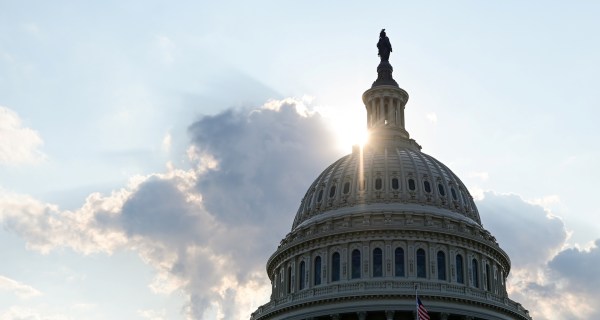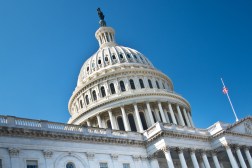Bill on research policy seeks to engage women, minorities

Congress has listened to experts in recent hearings and reports saying there is not enough diversity in the science, technology, engineering and mathematics, or STEM, workforce — and with a science policy bill the Senate is trying to solve it.
The bill, set to be marked up Wednesday by the Senate Committee on Commerce, Science and Transportation, addresses many aspects of science and technology research and development. But the American Innovation and Competitiveness Act, S. 3084, also devotes a sizable portion of its language to providing resources that encourage women and other underrepresented populations to stay in STEM careers.
A substitute amendment to the bill was introduced Tuesday, according to a press release from the committee. The substitute includes technical corrections, and a 4 percent increase in authorization for FY 2018 for the National Science Foundation and National Institute of Standards and Technology.
The House passed their version of the bill, H.R.1806, last year.
The Senate bill is part of a continuing policy debate about how to get underrepresented groups into the STEM workforce. This week, for example, Hillary Clinton acknowledged the problem in her fact sheet on technology and innovation.
“Hillary will put a special emphasis on minority and women advancement in the fields of research, technology, and engineering,” the fact sheet reads. “She believes we must break down the barriers to full and equal participation by all groups in the 21st century economy — particularly in cutting-edge sectors.”
A common thread in both Clinton’s fact sheet and recent congressional hearings is a concern that underrepresented groups are not being included in small business funding.
At a recent House hearing on reauthorizing the Small Business Innovation Research and Small Business Technology Transfer programs, officials said progress is slow on including minorities, and women.
[Read more: Agencies: Budgets strained by small business research]
And Hawaii Democrat Sen. Mazie Hirono, introduced a bill earlier this year that also tried to address diversity in the workforce, called the STEM Opportunities Act of 2016.
Many of the ideas from Hirono’s bill have been folded into the new Senate bill.
The bill’s focus on retaining women in STEM jobs is new, and sorely needed, said the Association for Women in Science’s Executive Director and CEO Janet Bandows Koster.
“It is the first time that we’ve really seen anything that addresses retention,” said Bandows Koster.
It depends on the discipline, Bandows Koster said, but some courses are graduating comparable numbers of women and men. The problem is that those women are not entering the STEM workforce.
An example: Women earn 47 percent of doctoral degrees in life sciences, but only make up 23 percent of full professors in life sciences, according to AWIS analysis of data from the National Center for Science and Engineering Statistics.
The Senate bill directs the National Academy of Sciences and NIST to jointly establish a postdoctoral fellowship program, while paying attention to the goal of including more underrepresented minorities.
“Despite representing half the population, women comprise only about 30 percent of STEM workers according to a 2015 report by the National Center for Science and Engineering Statistics,” the bill as introduced says, adding that “A 2014 National Center for Education Statistics study found that women and underrepresented minorities leave the STEM fields at higher rates than their counterparts.”
The legislation also provides for a program to award grants for activities that would increase the participation of women and underrepresented groups in STEM. Activities could include online workshops, mentoring programs, internships, outreach programs to elementary and middle schools or faculty recruitment.
The Senate bill also calls for the creation of two groups to address women and minorities in STEM: a STEM Education Advisory Panel, and a working group on STEM inclusion.
The interagency working group would be run by the White House Office of Science and Technology Policy, and would compile research on diversity in STEM fields. The bill directs the group to address topics including flexibility for caregivers, sexual harassment and bias in hiring and the workplace in general.
Bias isn’t always malicious, Bandows Koster said.
“It starts with simple things like the simple assumption that a woman doesn’t want to take a job overseas, or doesn’t want to be promoted to, you know, the c-suite because she’s got children,” Bandows Koster said. “So she’s not even asked.”
The House version of the bill also calls for the STEM Education Advisory Panel.






